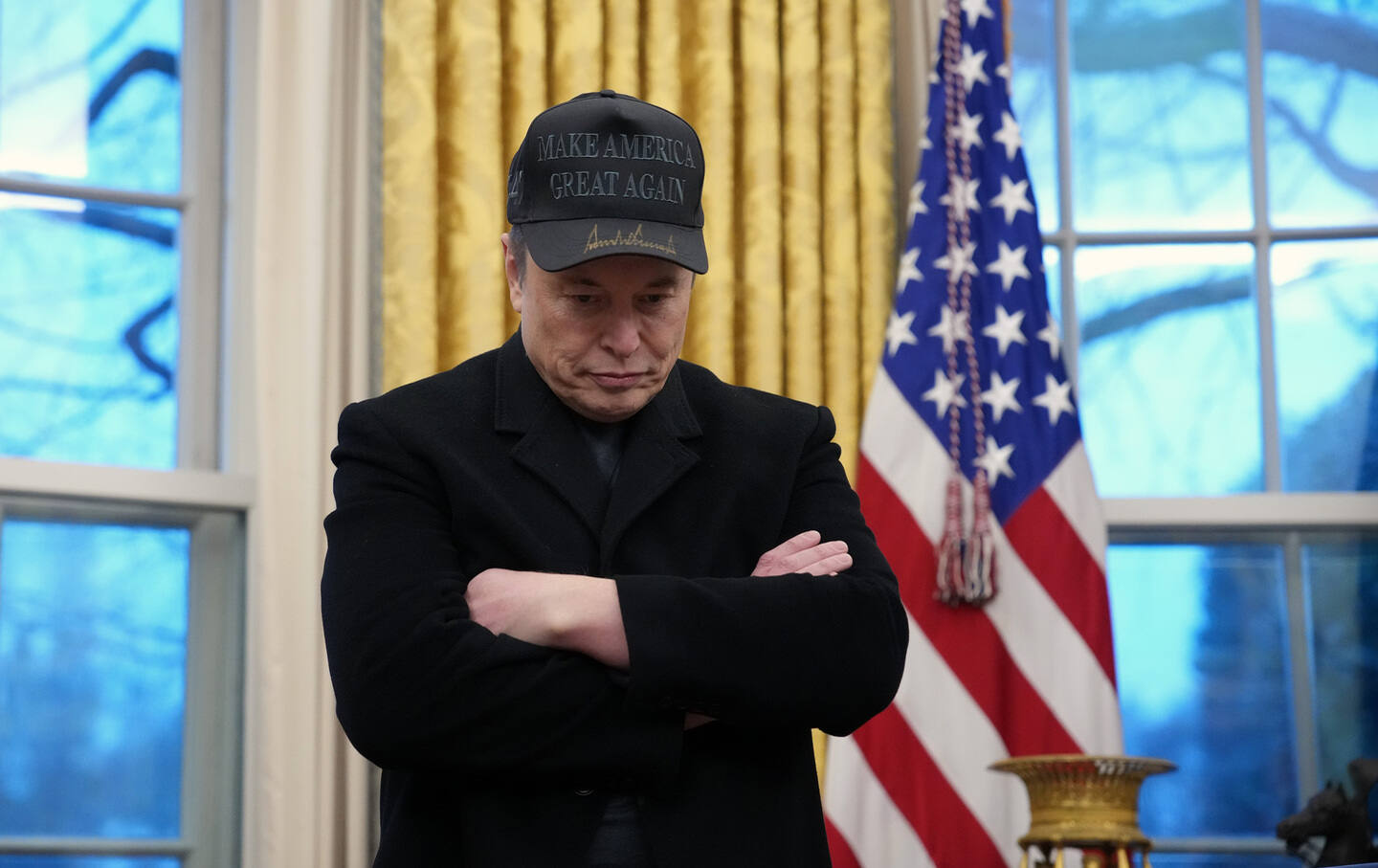For Trump, the Stakes of the 2024 Election Just Became: Win—or Go to Jail
The indictment Jack Smith brought against Donald Trump is strong. The only question is whether the former president can outrun the charges long enough to win reelection.
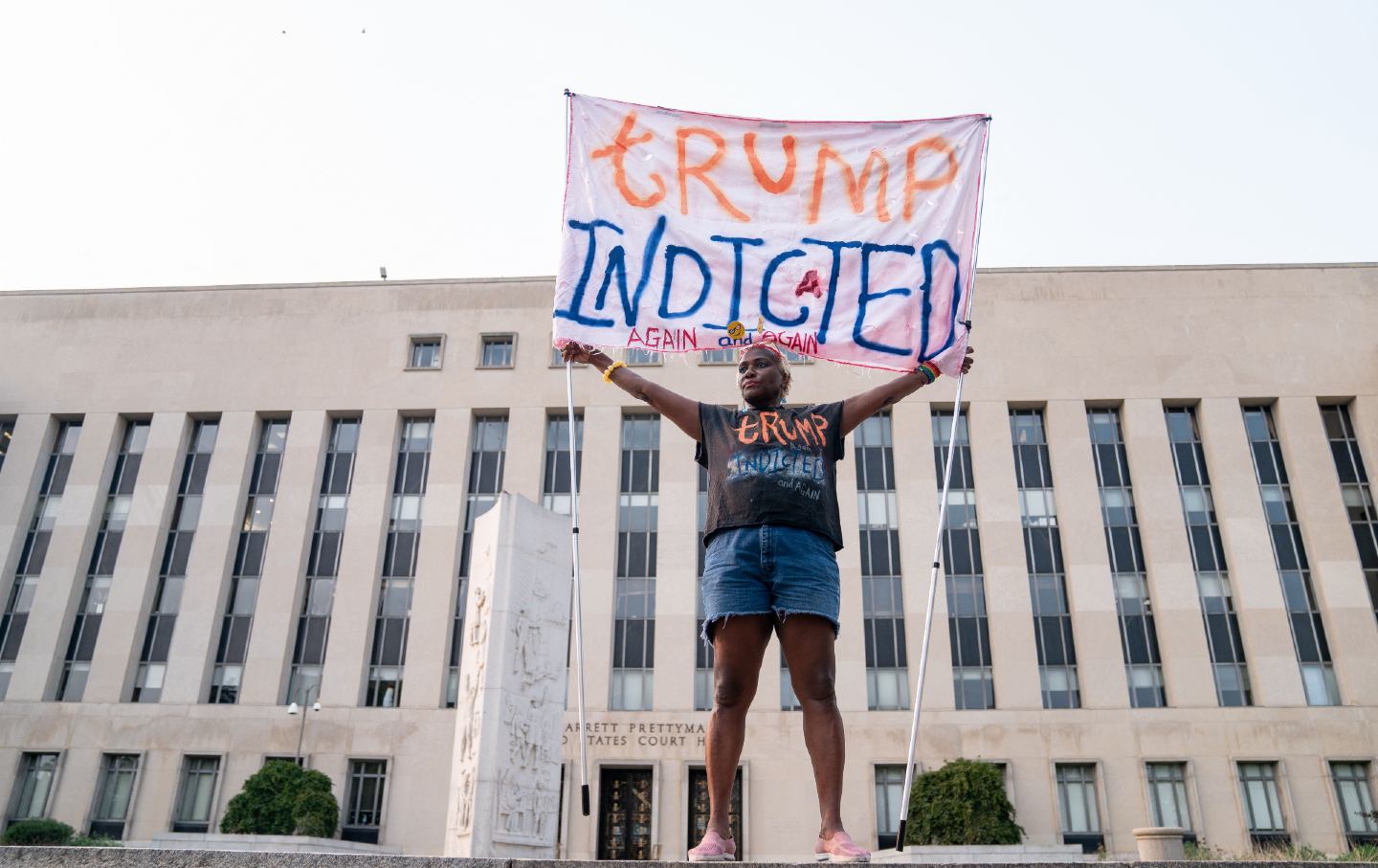
Either Donald Trump will be the 47th President of the United States, or Donald Trump will spend the rest of his life in prison, give or take a different future Republican president pardoning him or commuting his sentence. The latest federal indictment dropped on Trump makes it clear that, for him, the stakes of the November 2024 presidential election are win—or go to jail.
That’s because, unlike most other failed coup leaders, Trump will get a second shot to legitimately win the power he needs to keep himself out of prison. Other countries do everything they can to prevent people who’ve tried to violently overthrow the government from holding elected office, but our country has decided to try a different approach. There are two principal reasons Trump is being afforded this unusual grace: a strategic decision from special counsel Jack Smith, and the due process that is supposed to be afforded to every criminal defendant in this country—and is always afforded to wealthy white ones.
Regardless of how this all plays out, Smith’s decision will be discussed in the history books in countries that are still allowed to have history books. Yesterday, Trump was charged with three crimes arising out of his attempt to change the results of an election he lost: conspiracy to obstruct the tabulation of election results; conspiracy to obstruct the certification of those results on January 6, 2021; and conspiracy to deprive Americans of the right to vote. But he was not charged with insurrection, sedition, or treason. That is significant because an insurrection charge is the only one that could trigger the 14th Amendment’s prohibition on public officer holders who subsequently “engage in insurrection or rebellion” from holding public office again.
I have had this debate with every lawyer I respect over the past few years: Do you charge Trump with a weaker insurrection case because that’s the only thing that will legally prevent him from running for office again, or do you stick to the stronger obstruction case that still allows him to run for office from prison even if you get a conviction? Anecdotally, I’d say that most constitutional scholars and history buffs are on team “insurrection or GTFO,” while most trial lawyers and prosecutors respond to that with, “Are you freaking crazy? You only charge the crimes you are sure you can prove.”
Smith went with the stronger case, and since I’ve already been wrong about Smith once (when he was initially appointed, I thought he’d be another Robert Mueller type who was more interested in covering his ass than defending the country), I am not inclined to second-guess him again. Even though we all saw Trump engage in rebellion on January 6, proving that his intention was rebellion is more difficult than proving his intent to obstruct the electoral process. I do not think that Smith’s decision to drop the insurrection charge was politically motivated; I think it was legally motivated. He’s got Trump, dead to rights, on obstruction; he doesn’t have him on insurrection. Smith is working with the laws and the evidence he has. If he could make a rock-solid case for sedition, I think he would have charged it. He couldn’t, so he didn’t. I can only hope that it is enough.
I trust that Smith will be ready to move on Trump as quickly as the process allows, but the second thing that will allow Trump to run again is that the process moves slowly. That’s despite the fact that, unlike his federal indictment in Florida, Trump didn’t get to appoint his own judge in this case. Instead, he drew US District Judge Tanya S. Chutkan, an appointee of President Barack Obama who, by acclamation, is a no-nonsense jurist. She’s overseen the trials of January 6 defendants before, and sentenced them harshly. She has even presided over a Trump case: She denied Trump’s emergency 2021 motion to prevent the National Archives from turning over some of his records to the Select Committee on January 6, and she famously said, “Presidents are not Kings, and Plaintiff is not President.”
But Chutkan has a reputation for being fair to criminal defendants, and Trump will have some fair arguments for delay. First of all, as everybody knows, this is not the only indictment Trump is facing: he’s being charged in D.C. over January 6; he’s being charged in Florida over his mishandling of classified documents; he’s being charged at the state level in New York over his false business practices; and in the coming weeks, he’ll likely be charged in Georgia for trying to tamper with the elections process. That’s… a lot of cases for one criminal defendant, and there are no hard and fast rules for the order in which those cases should run. The prosecutors will huddle and present a plan to each of the judges presiding over the trials, but Trump’s defense lawyers will propose a plan too, and the judges will have to work it out. That alone could cause a delay in getting any one of the trials off the ground.
Moreover, Trump can legitimately argue that he needs a lot of time to prepare a defense to any of these charges, especially the federal ones that could put him in jail for the rest of his life. And then there are the illegitimate arguments: With January 6 in particular, Trump’s team will file massive discovery requests as they argue that “proof” of voter fraud and election interference is key to their defense to these charges. There is no proof, because Trump did not win the election, but who knows how many people Trump will try to subpoena and depose. And if anybody balks at what will be a trash and unwarranted subpoena, that could also cause delay. Indeed, every single pretrial motion that Chutkan denies will likely trigger an appeal to a higher court, many up to the Supreme Court, and if any one of those appeals is even in the ballpark of reasonable, we can expect conservative appellate judges to help Trump out by taking their time to rule.
And here’s the thing: Any of Trump’s tricks, legitimate or illegitimate, only has to work once. To go from charges to conviction before the November election, Smith has to essentially run the table and win against all the tactics for delay. Any loss, any decision by the Supreme Court to hear any of these issues on the merits before the trial has concluded likely punts the trial until after the election.
And if Chutkan rushes Trump through the process, quashing subpoenas, denying appeals, denying requests for extensions, basically doing what will be necessary to keep a speedy trial date on track, that could all be grounds for appeal. You see, even if the trial somehow comes off before the next election, and Trump is convicted in that trial, that is not the end of the due process Trump is entitled to. First there will be a sentencing hearing, and those also take a lot of time. The defense will strenuously argue that a 77-year-old “first-time offender” (God, I hate writing that) does not deserve to be thrown in jail. Then there’s the post-conviction appeals process. If Trump were a regular defendant, I’d tell you that he’ll be filing his appeals from a prison cell, but he’s not. Even after a conviction and sentencing, Trump will run to the Supreme Court, asking for an emergency stay of his jail sentence while his appeal and campaign to return to office plays out.
Should the Supreme Court grant such clemency to Trump? No. Do they do so for other people convicted of crimes? Absolutely not. Will they do so for Trump? I don’t know, folks—what do you think the six Republican-appointed justices on the Supreme Court will say when the Republican nominee for president argues that he should not be jailed a few weeks before a presidential election, when he is actively in the process of appealing that conviction?
Lawyers rightly freaked out when FBI Director James Comey sent a letter announcing the reopening of an investigation into a presidential candidate a week before the 2016 election. Do people really think the conservative Supreme Court is going to let agents of the state run by Trump’s political opponent physically apprehend him and place him behind bars a month or two before the election?
Popular
“swipe left below to view more authors”Swipe →I do not think that. I do not think Trump is going to prison before the presidential election. The timeline simply doesn’t work out. Trump has too many legitimate ways to keep himself free while he runs for office, and that’s before thinking about all the illegitimate things he will do to further gum up the process. Maybe if Trump were facing an insurrection charge there would be a winnable legal argument (to John Roberts and maybe Neil Gorsuch, along with the three liberals) that all of this had to be wrapped up quickly so the American people could know if they were even allowed to vote for the traitor again. But given the fact that, as the charges now stand, Trump will be allowed to run for president again, even if convicted and jailed on all charges, the prospect of actually incarcerating him while he is actively campaigning for that office is incredibly dim.
If we wanted to imprison Trump before he ran for office, the charges against him needed to come much earlier. The fault for this delay is not on Jack Smith but on Attorney General Merrick Garland. In the aftermath of Smith’s indictments, there have been a lot of people retroactively determining that this case came as fast as it could have. That is false. Now that we’ve seen the indictment, we know that all the information needed to charge Trump was uncovered by the Select Committee on January 6, and so we know that Trump could have been charged with these crimes a long time ago, at the start of this year (after the select committee wrapped up its work) at the very latest.
Think about it this way: Smith’s indictment references six unindicted co-conspirators. Smith doesn’t name them, but we’re all pretty sure who five of the six people are. That’s because the January 6 committee already uncovered their crimes and presented them to the public over the course of their hearings. The truth has been out there, for a long time; we just didn’t have a prosecutor willing to act on it. Indeed, the only “new” details in the indictment come from the fact that Smith, unlike Garland, used the power of the Department of Justice to make people like former vice president Mike Pence testify, after he thumbed his nose at the congressional committee. That’s a deposition Garland could have compelled two years ago, had he been so inclined. There is nothing that Smith has done that Garland couldn’t have done earlier. As The Wedding Singer would say, these were all things that could have been brought to our attention, yesterday.
But it’s not all bad. Trump should have been imprisoned after he lost the last election, but he certainly will be if he loses the next one. The legal system that has operated so well to protect Trump up to this point in his life has finally turned the corner. Trump’s only defense to these charges is “I’m about to be president again.” Once that is off the table, he’s got nothing else to fall back on. Once he can no longer dangle pardons in front of his co-conspirators, some of them are likely to turn state’s evidence to save their own skin. Once Trump is defeated by the American people (again), he will find that even his handpicked Supreme Court justices will no longer take his calls (except Clarence Thomas who has… familial reasons to stay invested in Trump’s defense).
I believe Trump will go to prison, because I believe the people will reject his bid for power. It’ll just take one more election. Former New York Governor Al Smith once said, “The cure for the evils of democracy is more democracy.” I hope he was right. Other countries use military power to send their insurrectionist leaders directly to jail. We’re going to try to use the Electoral College to get the job done. May [whatever imaginary friend you believe in] bless the United States of America. We’re gonna need it.
Support independent journalism that exposes oligarchs and profiteers
Donald Trump’s cruel and chaotic second term is just getting started. In his first month back in office, Trump and his lackey Elon Musk (or is it the other way around?) have proven that nothing is safe from sacrifice at the altar of unchecked power and riches.
Only robust independent journalism can cut through the noise and offer clear-eyed reporting and analysis based on principle and conscience. That’s what The Nation has done for 160 years and that’s what we’re doing now.
Our independent journalism doesn’t allow injustice to go unnoticed or unchallenged—nor will we abandon hope for a better world. Our writers, editors, and fact-checkers are working relentlessly to keep you informed and empowered when so much of the media fails to do so out of credulity, fear, or fealty.
The Nation has seen unprecedented times before. We draw strength and guidance from our history of principled progressive journalism in times of crisis, and we are committed to continuing this legacy today.
We’re aiming to raise $25,000 during our Spring Fundraising Campaign to ensure that we have the resources to expose the oligarchs and profiteers attempting to loot our republic. Stand for bold independent journalism and donate to support The Nation today.
Onward,
Katrina vanden Heuvel
Editorial Director and Publisher, The Nation
More from The Nation
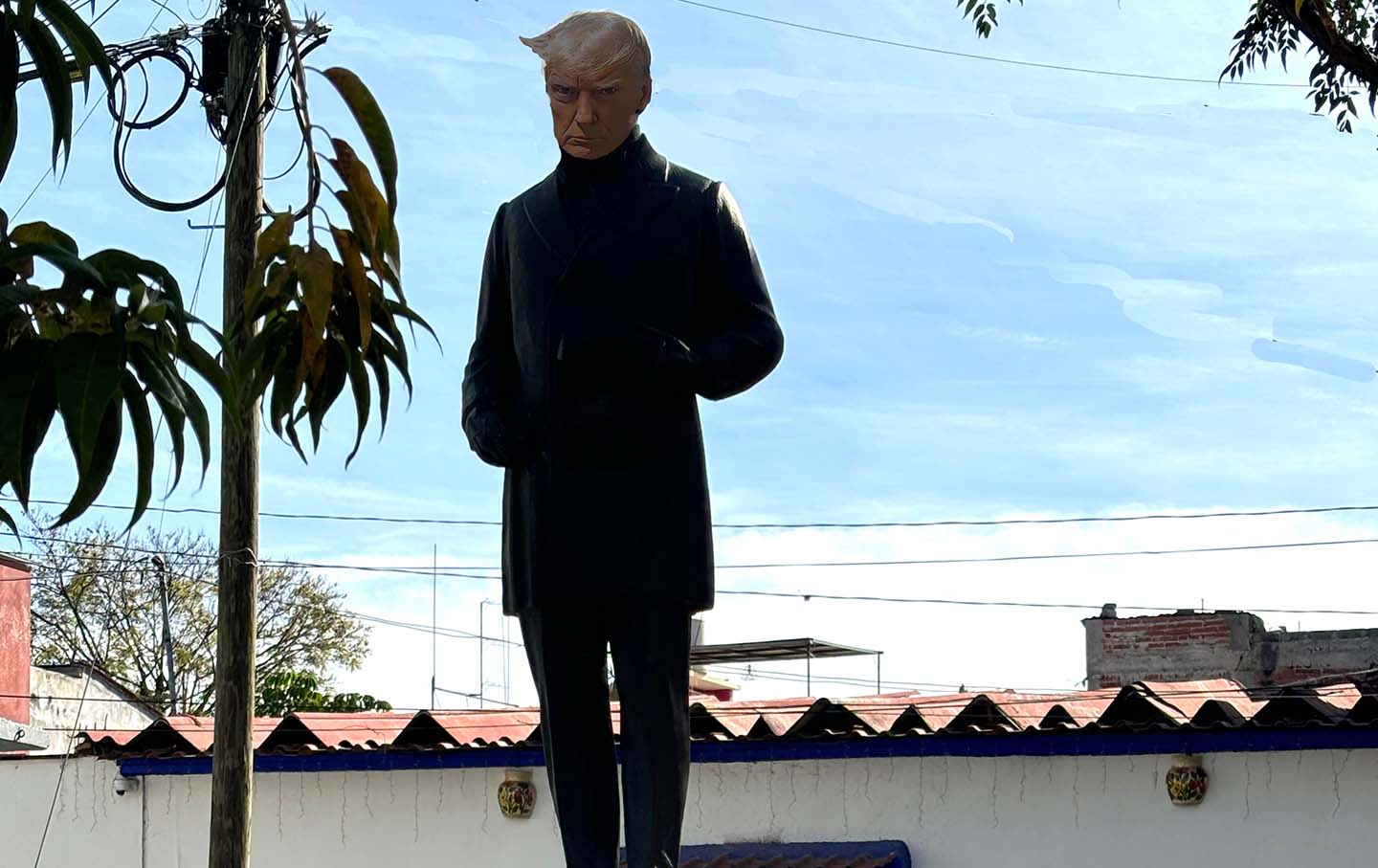
Making Enemies With the World Making Enemies With the World
Trump’s anti-immigrant position is devastating lives.
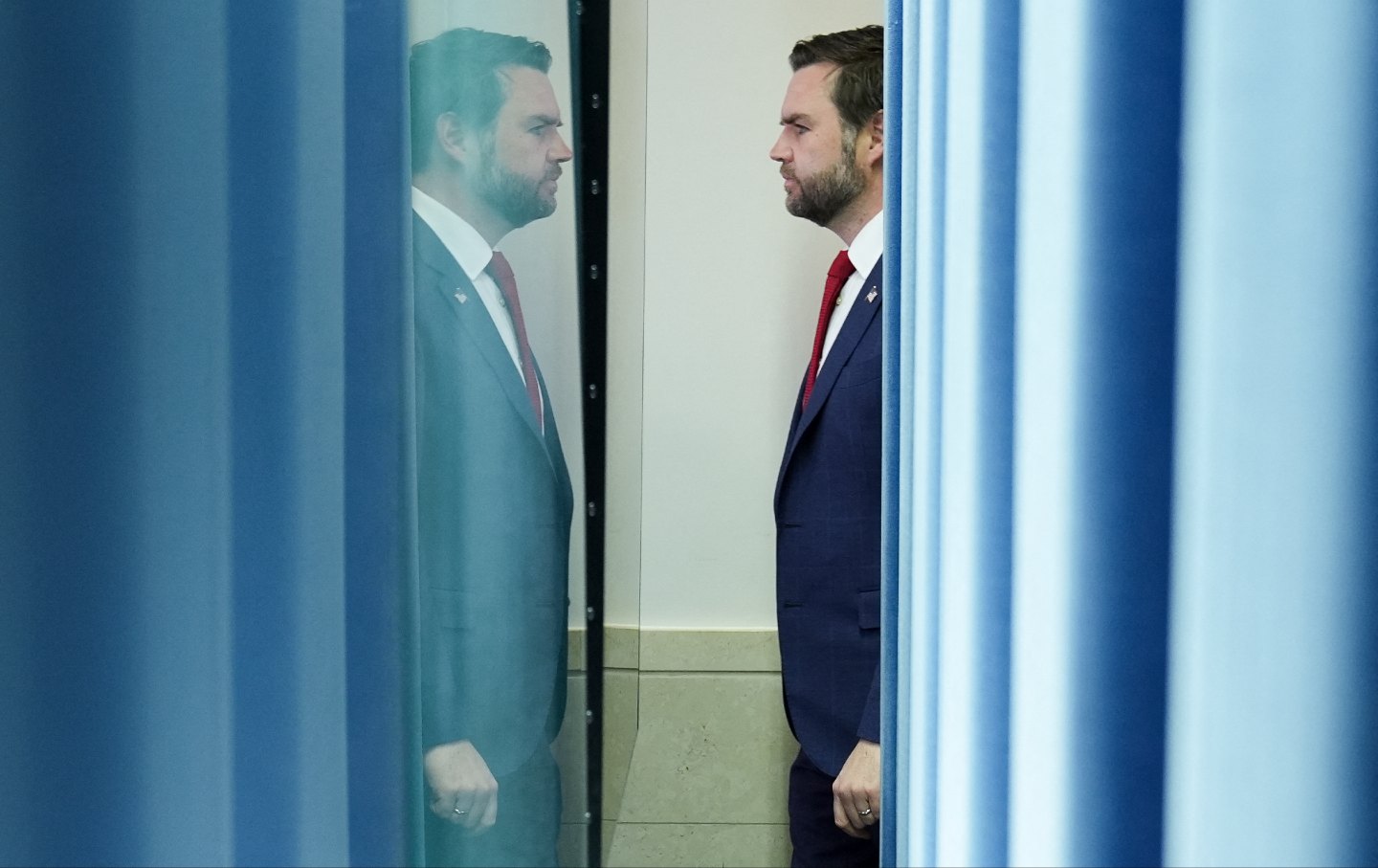
The Agony of JD Vance The Agony of JD Vance
The vice president's main job appears to be to embody the banshee scream of a dying order.
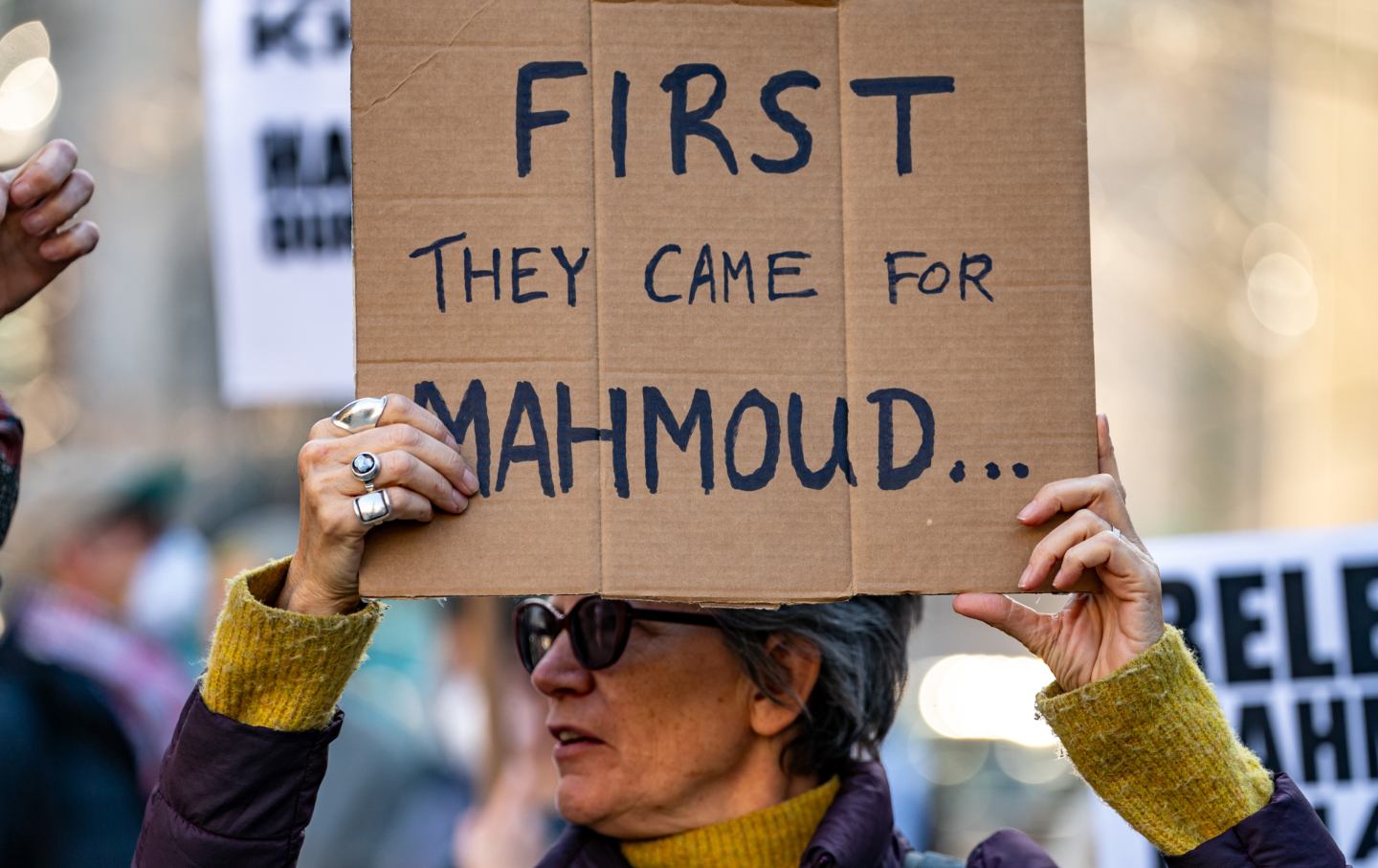
14 House Dems Demanded Mahmoud Khalil’s Release. Where Are the Others? 14 House Dems Demanded Mahmoud Khalil’s Release. Where Are the Others?
All members of Congress swore oaths to defend the right to speak freely and assemble to petition for the redress of grievances. Why did so few of them sign this important letter?
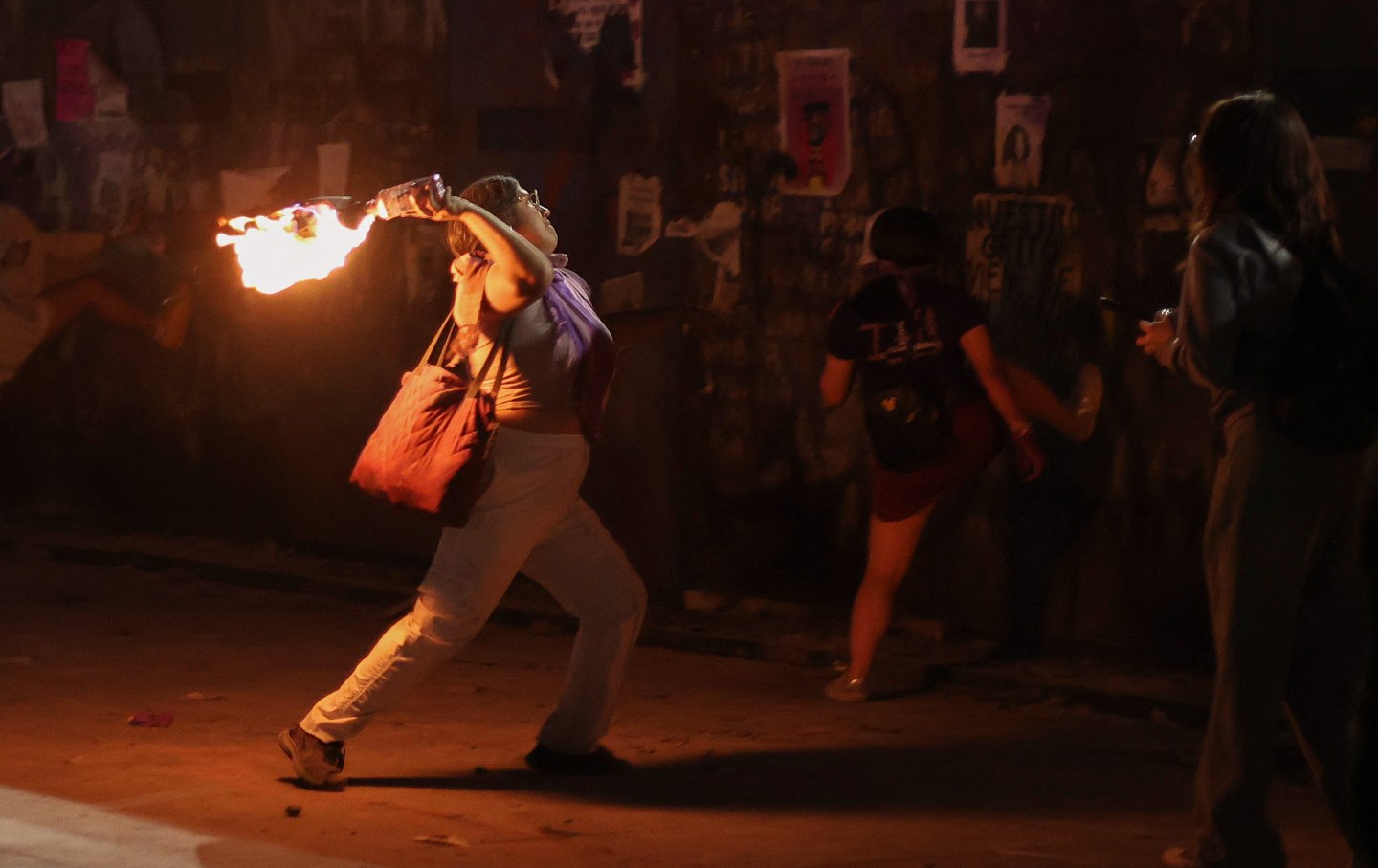
Is Political Violence Ever Acceptable? Is Political Violence Ever Acceptable?
Natasha Lennard argues that it’s harmful to acquiesce to the state’s determinations of violence, while David Cortright writes that violent acts prevent mass resistance movements.


